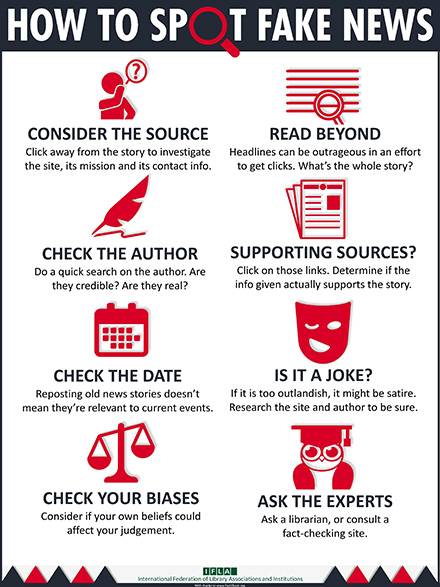This week we are thinking about the future. How will technology affect the careers of the future? How is technology already changing how we work and live? And what can you do to keep up with these ever changing times?
This is a huge area but in this blog we hope to give you an overview of some of the key trends and ideas. There are lots of further resources linked throughout for you to explore further.
Personal awareness
"Let me explain how the internet works. See, it's not a big truck. It's a series of tubes. And those tubes are filled with the internet."
- Titus Andromedon, The Unbreakable Kimmy Schmidt.
Even if you have no interest in a career directly related to technology, having an understanding and awareness of key aspects is important. Technology is not a discrete phenomenon – it is firmly planted into our daily lives. From click-bait in your news feed to election influencing ‘fake news’. From Google knowing your location history to massive data breaches. These things affect all of us on the small and grand scale.
Below are some themes to think about
Get your facts straight
“Democracy is at risk from the malicious and relentless targeting of citizens with disinformation and personalised ‘dark adverts’ from unidentifiable sources, delivered through the major social media platforms we use everyday.”
– Damian Collins MP, Chair of the Digital Culture, Media and Sport committee. (Chairs comment from the Disinformation and ‘fake news’ report)
The Digital, Culture, Media and Sport Committee recently published their final report on ‘Disinformation and fake news’. As the quote above indicates, it is pretty damning about the role that social media companies have played in the spread of fake news. The report proposes new powers, regulations and reforms to combat disinformation.
However, it also recommends that digital literacy is an essential skill for the public to be able to navigate information. During your degree you might have had training from the library or on your course about how to identify good sources for your academic work. These literacy skills are just as important in your daily life to help you recognise fake news. The ability to assess information and spot dodgy sources is going to be attractive to employers too!
Check out the image below for some key points to consider.

Find out more:
- Ask the library and keep an eye out for their Fake news training sessions
- Make use of sites like Full Fact to get a factual assessment of news stories
- Check out the Navigating Digital Information video series from Crash Course which covers the basics of analysing information on the internet.
- Check out this Fake News Guide from Newcastle University Library for more resources
Take control of your digital footprint
"Never trust anything that can think for itself if you can't see where it keeps its brain."
- J.K. Rowling
We live our lives online and share more than ever before but is important to be mindful of what we put out there. Privacy settings aren’t just there to stop a potential employer seeing your embarrassing photos! Do you know which apps are tracking your location on your phone? Do you know what that cookie permission warning means that pops up on every new webpage you visit?
It can be shocking to know how much can be discovered about you from your digital footprint online and how much you are sharing with companies. Equally – having your accounts compromised can have serious consequences.
These skills transfer to the workplace too. Data security, GDPR and information sharing are important considerations in most lines of work. So having a handle on your own information is a good point to start with.
Find out more
- Take the data detox and understand how your data is used and you are tracked across the web
- Get expert advice from Security Planner
- Find more tools to protect your privacy listed by the American Libraries Association
Skills for the future
There's only one kind of dance. The Robot
(And the Robo-Boogie)
Oh, and the Ro - two kinds of dances
(But there are no more humans)
Finally, robotic beings rule the world
- Flight of the Conchords: The Humans are Dead.
With the rise of AI and big data, we have entered what is being called the fourth Industrial Revolution. For some of you it may mean you end up in a job that hasn’t been created yet! There have been dire warnings that AI will result in huge job losses as AI automates jobs. Although this is not universally agreed upon.
However, it is clear that these new developments are going to cause changes in the way that we all work. The Future Skills of Employment in 2030 report suggests that skills like:
- Judgement and decision-making
- Fluency of ideas
- Active learning
- Complex problem solving
- Critical thinking
will be in high demand. Whereas more manual skills will be automated by new technology.
It is interesting to see that these top skills are not knowledge or industry specific skills, but so-called ‘soft’ transferable skills.
No one can predict the future though! It can be hard enough to decide what career you might like without factoring in complex future societal shift. In the Careers Service we wouldn’t suggest making your career plans solely based on predictions for what the workplace might look like in 10 years time! However, there are going to be shifts in how every workplace operates in the future. So thinking more practically, what does that mean and what can you do?
Well it is important to stay focused on sectors and trends for future growth. This awareness may make your future career progression easier. For skills, it is important that you hone your ‘human skills’. Examples include the skills listed above and other aspects like emotional intelligence. These are skills that it would be difficult to automate in an AI dominated future.
All workplaces are going to change, so it is wise that we are all able to embrace change. We will all need to be prepared to work with new technologies and be life-long learners. Upskilling and using transferable skills across different jobs will likely be an integral part of career paths of the future.
Find out more:
- 4 steps to Future-Proof your career - Forbes Insights
- How to build the one job skill they can't automate (yet) - Atlassian
- Check out occupational research resources on MyFuture resources to understand trends and demands in sectors you are interested in
- Future of work podcast from McKinsey
- Previous blog post from Careers Adviser Saiyada – Graduate skills in the world of the future
- The People Currency - practicing emotional intelligence
- 10 skills you'll need to survive the rise of automation - World Economic Forum
Jobs of the future - today
“Maybe the only significant difference between a really smart simulation and a human being was the noise they made when you punched them.”
― The Long Earth
Are you interested in working in AI, machine learning, data science, digital marketing and beyond? The Careers Service can help you with every step of your career planning whatever your career interest. We can help you with narrowing down your options, your job search and succeeding in the selection process.
Below are some resources to help you with your research if you are interested in careers in these new emerging areas in tech.
- Free online MOOCs are a great resource for developing your skills. Check out Introduction to Big Data and What is Data Science?
- The YouTube channel Two Minute Papers, is a quick and easy way to stay up to date with tech trends
- Check out our panel event recording on careers in data science and artificial intelligence
- Many startups deal with cutting edge technology. Check out Work in startups for job listings
- Interested in digital marketing and advertising? Check out our interview with Sarah Glozer
- Check out job profiles on Prospects to get an insight into what the jobs actually entail: see Data Scientist, Machine Learning Engineer, Digital Marketer and Cyber Security Analyst .
- Digital Human Podcast from Radio 4 gives a good digest of tech developments. They also have a Tumblr with links to papers/research.
- Curated list of podcasts about future trends
- If you are interested in digital marketing, check out Google Ads Certification
We hope this was an interesting and useful overview. For more help with your Career - check out MyFuture
01000001 01001001 00100000 01110010 01110101 01101100 01100101 01110011 00100001
Respond

